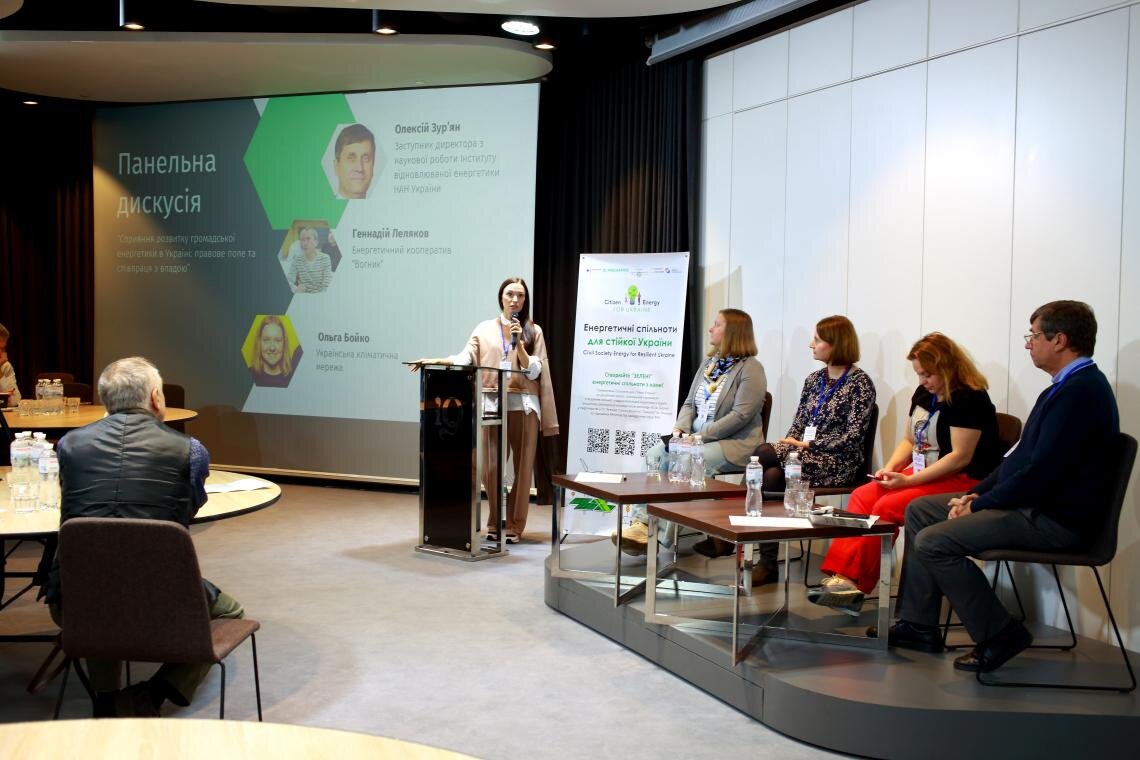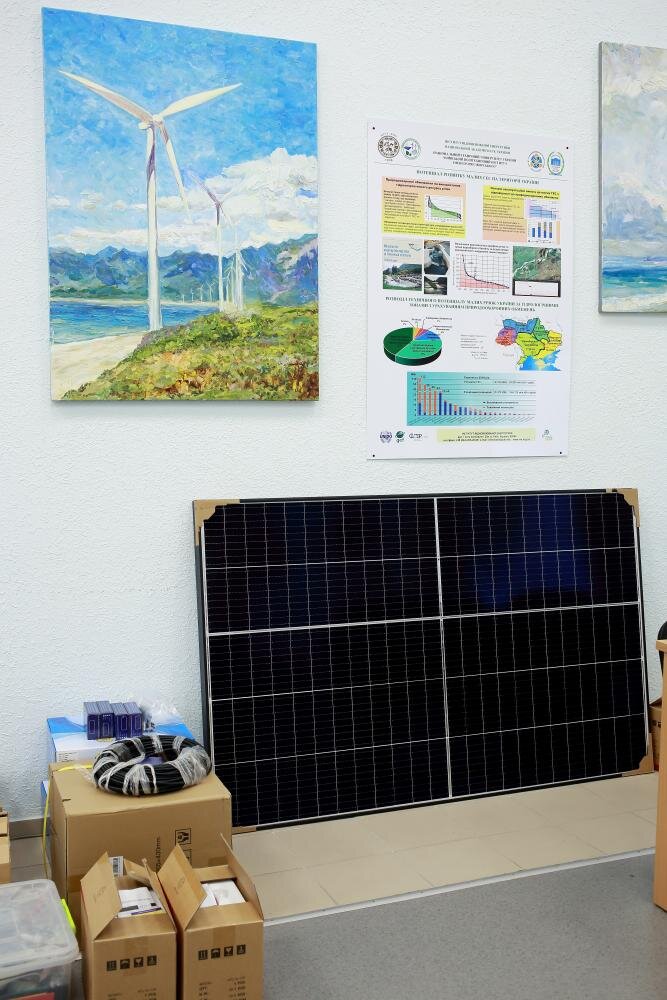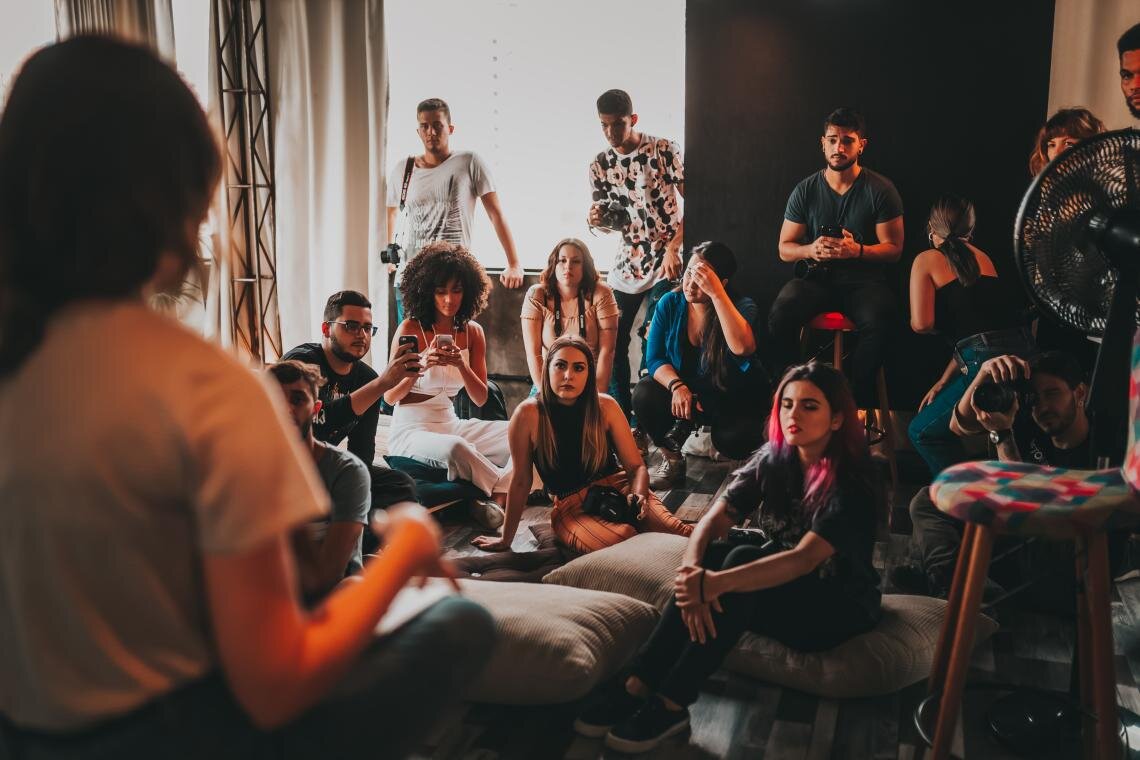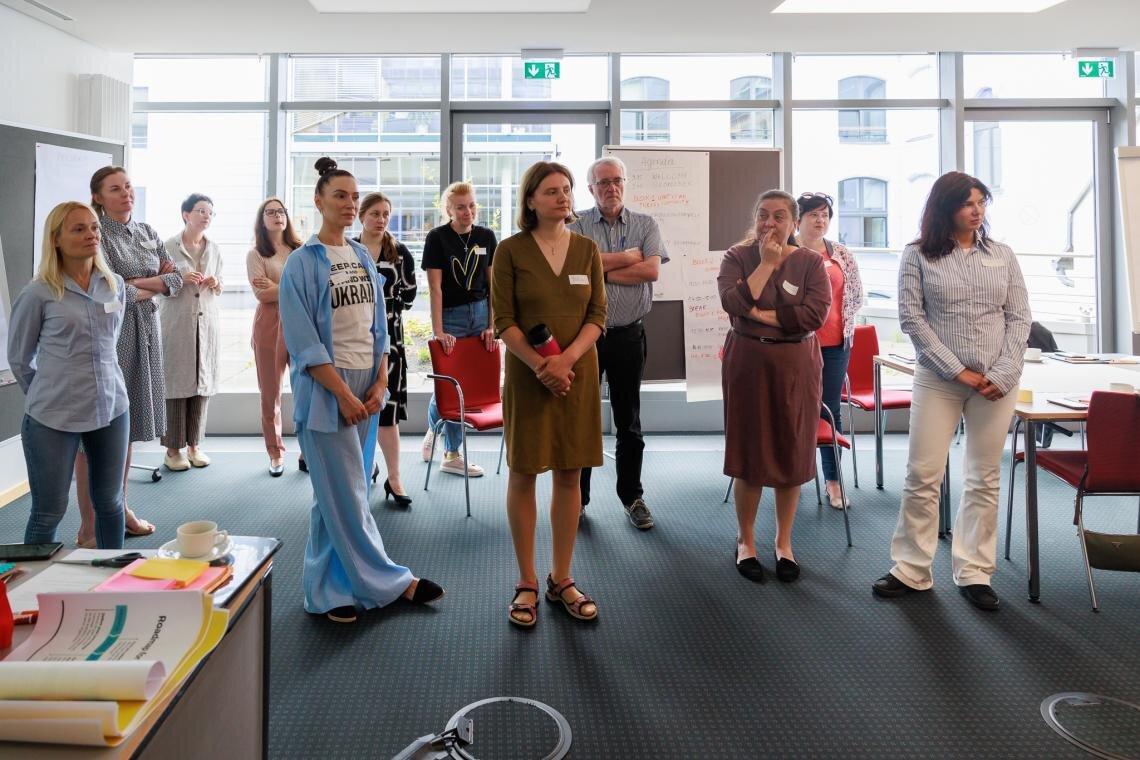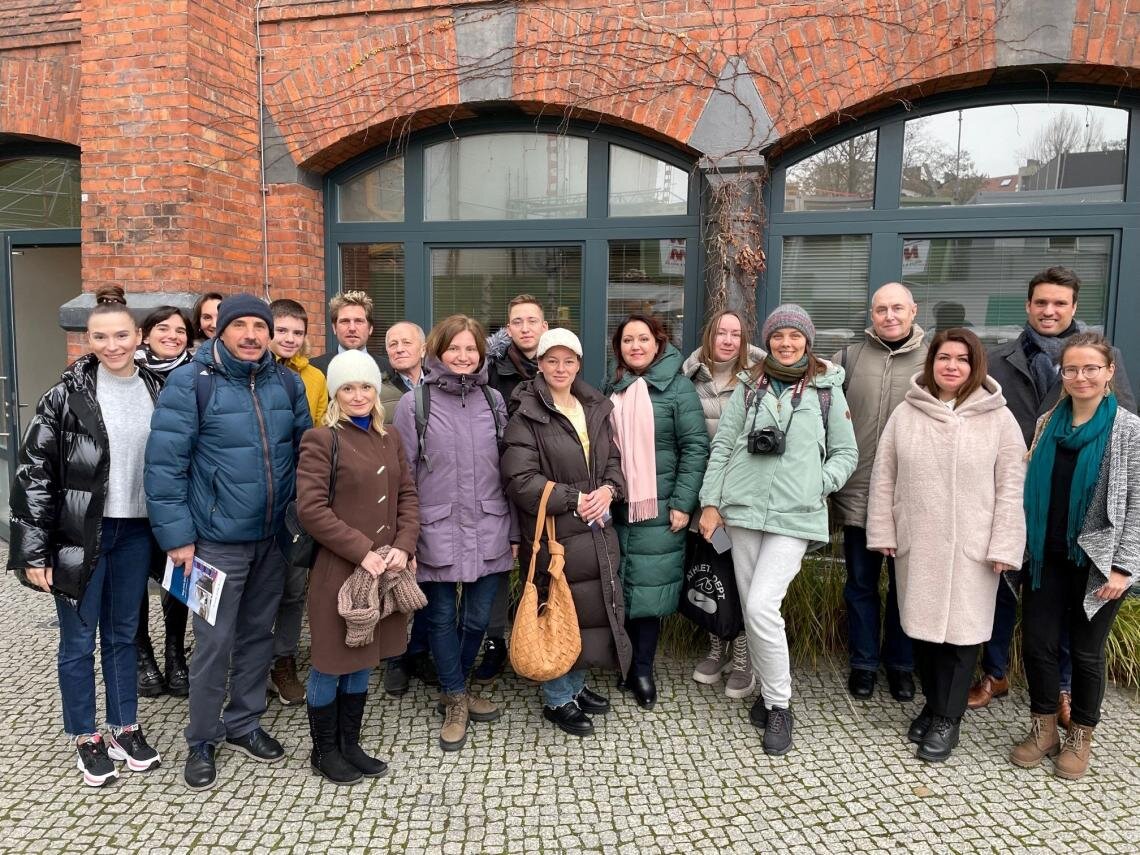At the ChangeLab from 3 to 6 June 2022 in Berlin, more than 120 environmental activists from Germany and Ukraine gathered to talk about the expansion of green energy, the reconstruction of Ukraine and Europe's energy independence.
The ChangeLab at the BUFA site in Berlin started with the presentation of the project "Civil Society Energy". Already in 2021, in the frame of the project were organized exchange events in Berlin and a hackathon in Chernihiv, and the guide "Energy Cooperatives: How to" was published.

The next topic was solar architecture. The speaker Astrid Schneider presented the political process of the Renewable Energy Sources Act (EEG) and how the government quarter was redesigned using solar power after reunification. As an architect and energy expert, but especially as an active campaigner for the energy transition, Astrid Schneider experienced and helped to shape this process. In the afternoon, there was an excursion through the government quarter, the main railway station to the Futurium, where the participants were able to see all the elements of the "Solar Government Quartier Berlin". The government buildings are supplied with a decentralised system of 100 % renewable energy, consisting of the following components: combined heat and power plants powered by biodiesel from rapeseed oil, photovoltaic systems, chillers, dehumidifiers and evaporative coolers as well as compression chillers. You can see the presentation of the "Solar Government Quartier Berlin" here.

The next day, the Ukrainian participants were divided into two teams:
- One part dealt with the network of the "Solidarity Building Industry" around ecological building methods of Tiny-Houses with wood and clay, but also around the question of how building sites can be organised cooperatively and collectively.
- The other part met directly with architects and energy experts to calculate the technical energy supply of the Tiny-Houses with renewable energies. Using the software, they learned how to calculate island systems, the orientation of PV modules and the scaling of electricity storage systems.
The question of financing was also the focus of further discussions. In particular, the cooperative model was discussed, which brought the success of over 900 energy cooperatives in Germany by offering participation to large parts of civil society as co-investors. For this purpose, Beate Peterson from the Bündnis Bürgerenergien e.V. and the cooperative expert Felix Weth travelled to the conference and shared their experiences.

On Sunday evening, about 40 activists from both countries came together to consider how they can take action to help the 6 million internally displaced people in Ukraine in particular. Ideas such as online courses on solar energy, tiny-house ecovillages for IDPs and fundraising campaigns were discussed.
Finally, the participants from Ukraine were invited on an expert trip to the energy village of Nechlin, where, even before the collapse of the Soviet Union, renewable energy was being developed in cooperation with scientists from Kyiv and the first wind turbines were installed. Jörg and Ute Müller from ENERTRAG AG presented their story to the participants. How they started building the first wind turbine as nuclear scientists right after the Chornobyl disaster, how they supplied their village of Nechlin with solar power, and how they now even run an entire local heating network with wood pellets and the heat from regulated wind power. Finally, the participants discussed with Jörg and Ute Müller the possibility of a green power supply in Germany and Ukraine.














